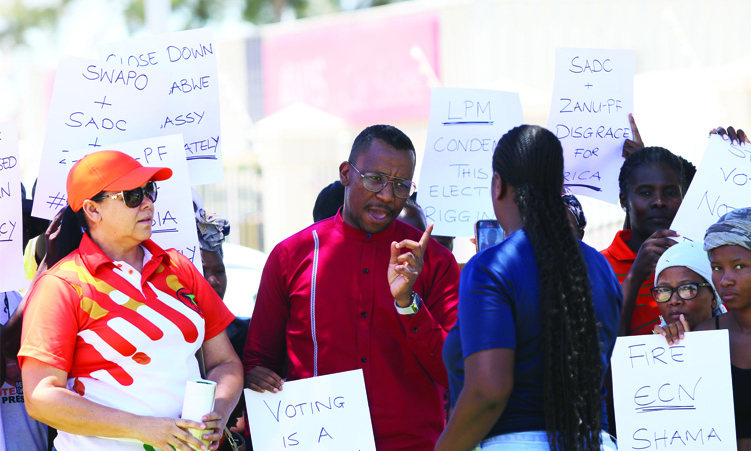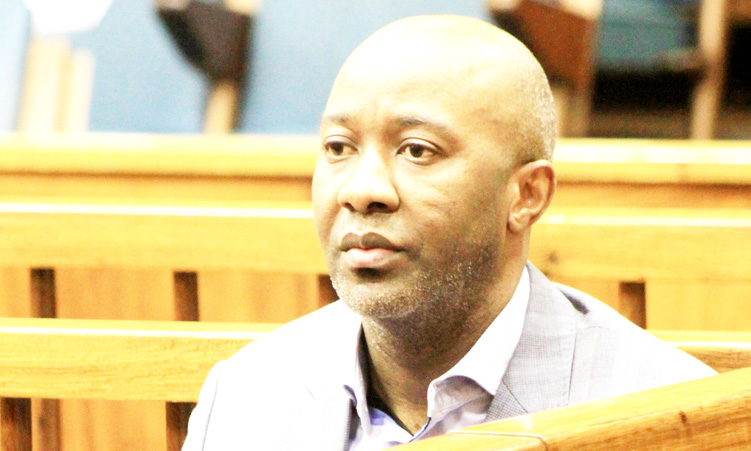RIGHTS over communal land that were granted before Namibia’s independence are protected by the Constitution and are not terminated when the land becomes the property of a local authority, the Supreme Court has affirmed in a landmark judgement.
When the Namibian state took ownership of communal land areas with the country’s independence in 1990, it assumed an obligation to look after the interests of the people living on that land, deputy chief justice Petrus Damaseb pointed out in an appeal judgement in which a Zambezi region resident last Friday scored a victory over the Katima Mulilo Town Council to have her rights over a portion of communal land confirmed and protected.
The obligations towards people living on communal land that the Namibian government assumed with the country’s independence involves recognition and respect for the rights of the members of a community to live on the land, work it and sustain themselves, the deputy chief justice said in the Supreme Court’s judgement on an appeal that Zambezi resident Agnes Kahimbi Mufaya, (née Kashela), lodged against a High Court judgement delivered in March last year.
The state, as owner of communal land, has social obligations which a private owner does not have, judge Damaseb remarked, adding: “It has to use that land for the public good.”
When the state in 1990 became the lawful owner of the communal land on which the majority of the country’s black people live, tension arose between the state’s legitimate interest to develop those areas and establish infrastructure on communal land, and making available land on which communities would continue to live and provide for themselves, the deputy chief justice also said.
“The notion that one was more important than the other is difficult to reconcile with the Namibian state’s duty to look after the well-being of its marginalised communities and to restore their lost dignity,” he stated.
Judge Damaseb made the remarks in the context of a dispute that arose between Mufaya and the Katima Mulilo Town Council after communal land over which Mufaya’s late father had been granted rights in 1985 was transferred to the town council in 1995.
Mufaya’s father, Andrias Kashela, was allocated a portion of communal land by the then head of the Mafwe Traditional Authority in 1985. She continued to live on the land in question after his death in 2001.
However, after the land had been transferred to the Katima Mulilo Town Council in 1995, the town council rented out portions of the land occupied by Mufaya, and later also sold parts of the land to five buyers.
In 2012, she sued the town council, the government and the buyers of the land, alleging that the town council had unlawfully taken parts of the land over which she acquired rights upon her father’s death. She claimed N$720 000 from the council as a result of money that the council allegedly received when it rented out portions of the land, and also N$2,4 million, which was the total price for which the council offered the land for sale to the buyers.
In the High Court, a judge dismissed her claim after finding that, while the customary rights over the land that had been allocated to the late Kashela were acquired by Mufaya when her father died, those rights ceased to exist when the ownership of the land was transferred to the town council.
Before Namibia’s independence, successive colonial administrations treated the country’s black people unjustly in the realm of ownership of and access to land, and whatever insignificant rights to land that black people enjoyed could be taken away at a whim, the deputy chief justice remarked in his judgement.
It could not be correct that the transfer of all communal land to state ownership at independence would have extinguished communal land tenure rights that existed at that stage, without affected persons having a remedy in terms of the law, judge Damaseb reasoned.
The fact that land ceased to be communal land would not necessarily result in the occupier of that land losing the protection given by the Constitution’s Schedule 5, which makes it clear that communal land was transferred to the government “subject to any existing right [or] obligation” over the land, the judge also noted.
Concluding that Mufaya acquired a right of exclusive use and occupation of the land upon the death of her father and that this right survived the proclamation of the land as part of Katima Mulilo townlands, the court ordered that the case should return to the High Court for Mufaya’s claim to be heard and decided.
Acting judges of appeal Fred Chomba and Yvonne Mokgoro agreed with the deputy chief justice’s decision.
Mufaya was represented by Legal Assistance Centre lawyer Willem Odendaal. Gerson Narib represented the town council when the appeal was heard on 2 October.
Stay informed with The Namibian – your source for credible journalism. Get in-depth reporting and opinions for
only N$85 a month. Invest in journalism, invest in democracy –
Subscribe Now!






